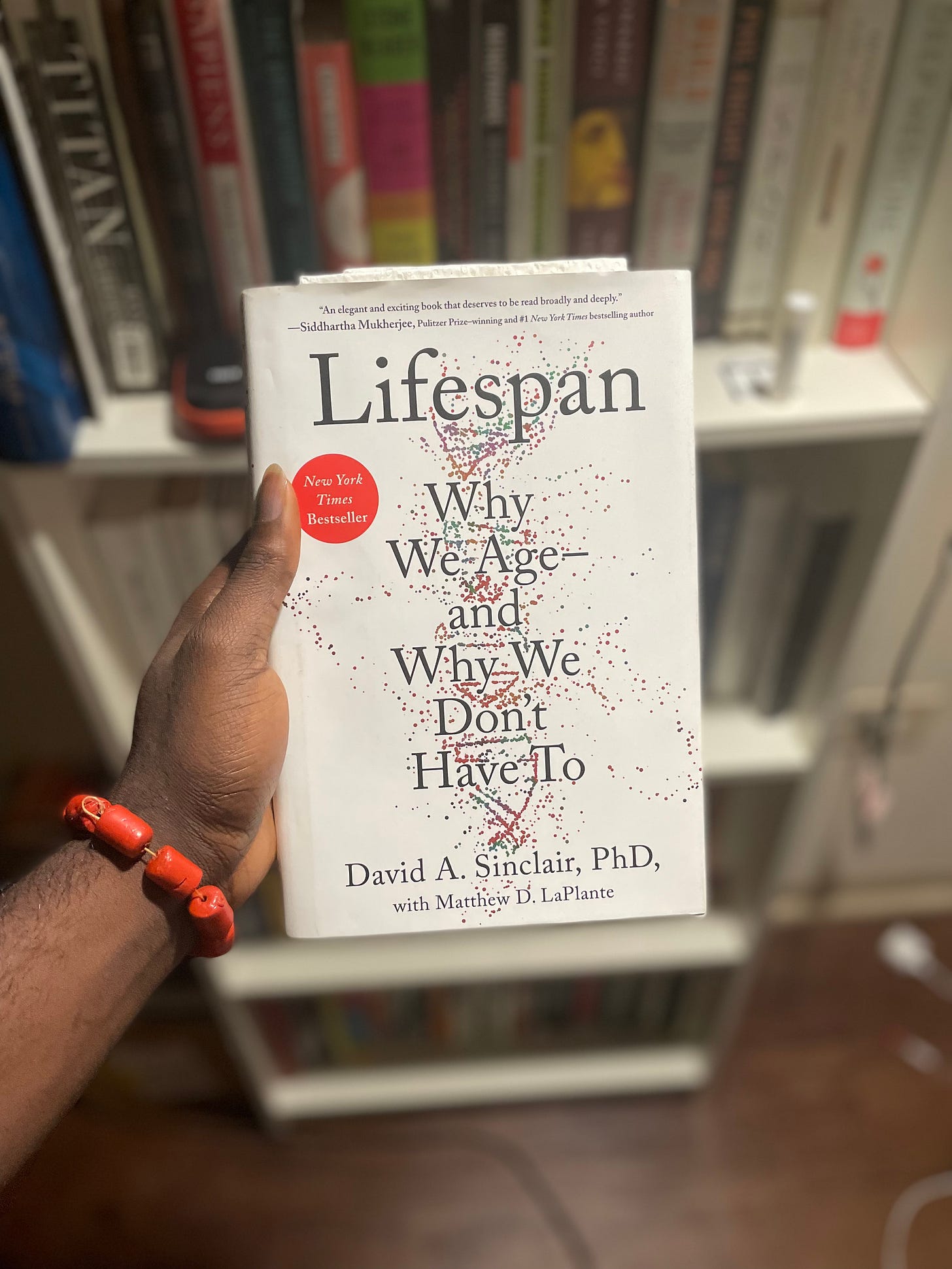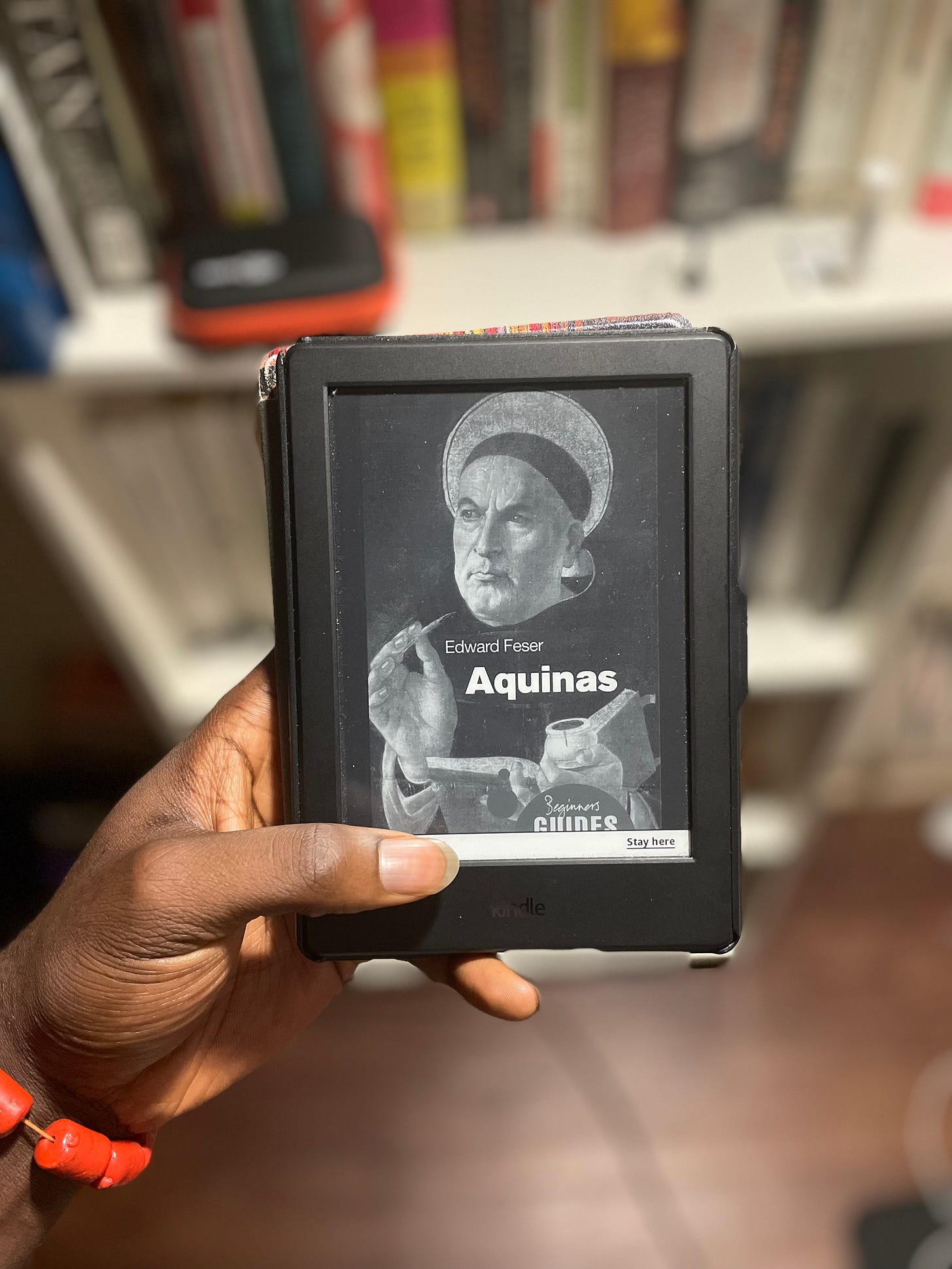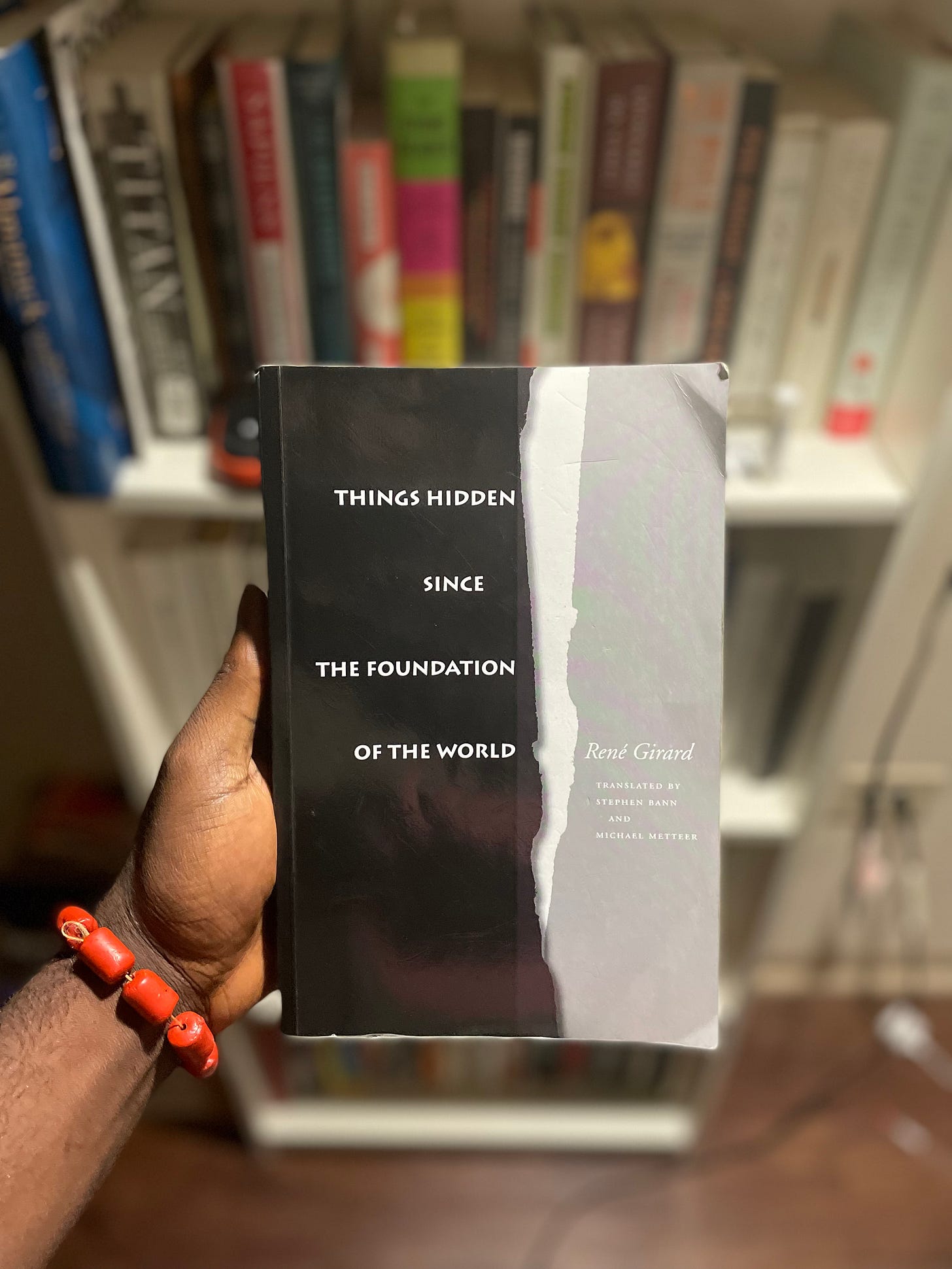Subject Area: Books
Summer is here, and I have a few suggestions if there is still some space in your summer book bag or if you are looking for a rejig. At least half of the books here are somewhat heavy reads, but I guess that’s fine. It covers several domains, including philosophy, data science, start-ups, anthropology, and biomedicine.
Hopefully, you will find something you will enjoy.
[Biomedicine]
Lifespan: Why We Age - and Why We Don't Have To by David Sinclair
Lifespan is the most important book I have read so far this year. The author champions an information theory of aging. Simply put, we age because of something called the ‘epigenetic noise,’ which alters gene expression patterns that, in turn, lead to a decrease in tissue functions and overall aging. Notably, the book discusses what an average folk can do today to potentially increase her lifespan plus what the future will look like in terms of lifespan extension. The author thinks lifespan extension is inevitable.
Read my essay Why We Age. To see if you would like to read the book.
[Philosophy]
Aquinas (A Beginner's Guide) by Edward Feser
I have tried to read Ed Feser’s Aquinas multiple times, but I haven’t been patient enough to pull it off. Finally, I am making some headway this summer. So, I will say it is not a beach book. You will need to be more invested. If you are interested in Thomistic philosophy, natural theology, and the like. This is a great book. The book starts with a mini-biography on Aquinas, Aristotelian-Thomistic metaphysics, natural theology (the five ways), and the like.
I have an essay on St Aquinas you can read to whet your appetite. St Aquinas on Trial.
[Data Science]
The Book of Why: The New Science of Cause and Effect by Judea Pearl
A robot (AI system) can't tell the difference between correlation and causation. For a robot to be endowed with this capability, the mathematization of causation and causal inference must be straightened out. This is the story the book shares - the algorithmization of causation. The authors started with the history of correlation and causation. (And the suppression of the latter in the statistical field.) This suppression led to the unnecessary obfuscation in the identification of smoking as a cause of lung cancer, which led to many deaths. Dr. Pearl introduced the ladder of causation, which is effectively the spine of the book: 1) observing (this is the realm of machine intelligence today), 2) intervention (What ifs questions), and 3) counterfactuals (imagination: What if I had done X). The book carefully climbed up this ladder introducing Bayesian networks, confounding and deconfounding, back door adjustment, front door adjustments, paradoxes burst with casual thinking, structural causal models, etc. Finally, Dr. Pearl ended with an audacious prophecy about machine intelligence - Al systems that can think and be self-aware.
[Start-ups]
Build: An Unorthodox Guide to Making Things Worth Making by Tony Fadell
I am currently completing Build; it is a part memoir, a full exposition on building products in the 21st century. Written by the creator of the iPhone, iPod, and Nest, it is quite an exciting story, and it’s more than that – Farrell gives his take on building a career. This is an excellent book for anyone remotely interested in start-ups.
[Anthropology]
Things Hidden Since the Foundation of the World by Rene Girard
“Things Hidden” is one of the most important and challenging books I have read. So, this book (and Girard) is potentially a summer project on its own, especially if you are unfamiliar with the world of Girard. Girard’s theory of mimesis explains quite a lot of things – one is tempted to say it explains everything. Why are humans violent? Why does it seem many of us never get satisfied by anything? What explains our obsession with prestige? What is the origin of culture, religion, and political institutions? How does Christianity destroy myths?
If you are thinking about whether “Things Hidden” will be worth reading, you can start by reading these essays of mine: We are all Copycats, Prestige as an Illusion, and Twins, Mirrors, and Taboos.
Happy reading!







